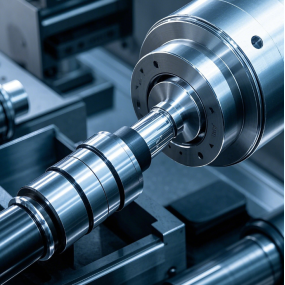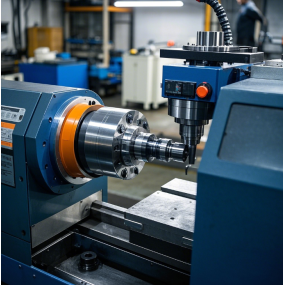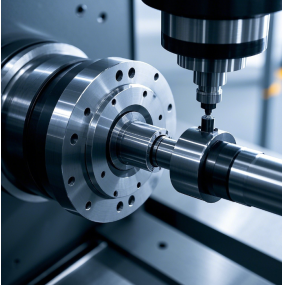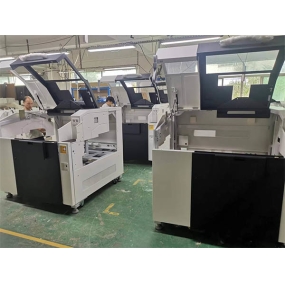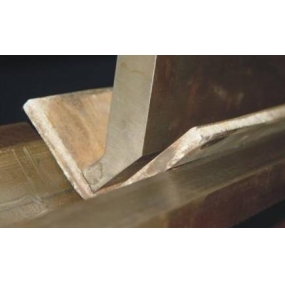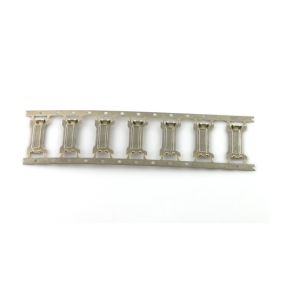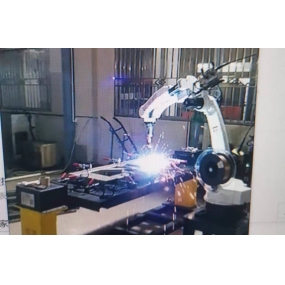First, the impact on performance < unk > Reduced corrosion resistance: Titanium alloys are widely used in various fields because of their excellent corrosion resistance. However, if the surface treatment of titanium alloys after CNC Machining is improper, such as the imbalance of hydrofluoric acid and nitric acid in the pickling process or the pickling time is too long, it may lead to the appearance of over-corrosion phenomenon on the surface of titanium alloys, manifested as pits or unequal concave and convex defects, which will significantly reduce its corrosion resistance. 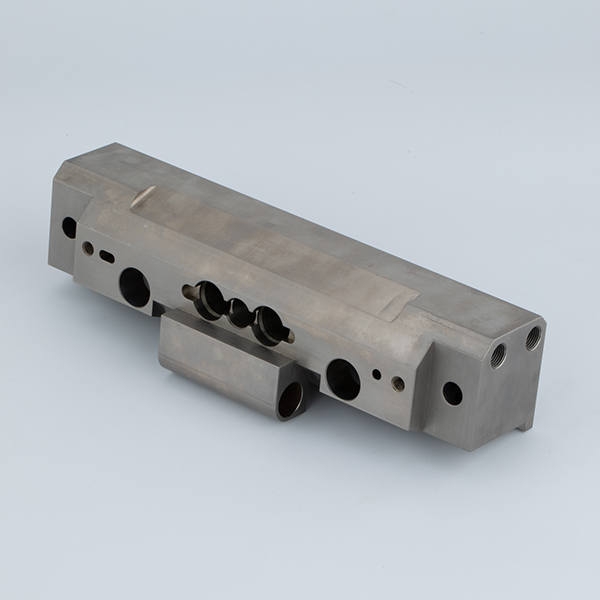 < unk > Decreased mechanical properties: Work hardening is a significant feature in the processing of titanium alloys. If the surface treatment is improper, such as improper selection or improper operation of taps during tapping, it is easy to cause work hardening, resulting in a decrease in the mechanical properties (such as strength, toughness, etc.) of titanium alloys. Effect of thermal conductivity: Titanium alloy itself has low thermal conductivity, and it is difficult to conduct heat in time during processing. If the surface treatment fails to effectively dissipate heat, it will further exacerbate the wear and heat accumulation of the tool, affecting the processing efficiency and processing quality. Second, the impact on the appearance Increase in surface roughness: During the CNC machining of titanium alloy, if the cutting parameters are not set properly or the tool selection is not appropriate, it will lead to an increase in the surface roughness of the machining. In addition, improper surface treatment (such as the hanging ash phenomenon caused by insufficient rinsing after pickling) can also directly affect the appearance quality of titanium alloy. Color change: In some cases, improper surface treatment of titanium alloy may also lead to color change. For example, over-heating or improper chemical treatment may cause defects such as oxidation discoloration or rainbow spots on the surface of titanium alloy. III. Impact on subsequent processing and use < unk > Increased processing difficulty: If there are problems such as hardened layer or increased roughness on the machined surface of titanium alloy, it will significantly increase the difficulty of subsequent processing. For example, in the subsequent milling or drilling process, tool wear will increase and processing efficiency will be reduced. < unk > Shortened service life: Titanium alloy parts need to withstand various mechanical and environmental effects during use. If improper surface treatment leads to performance degradation or defects exist, it will directly affect its service life and reliability. Countermeasures < unk > Optimized CNC machining parameters: According to the material characteristics and processing requirements of titanium alloy, processing parameters such as cutting speed and feed rate are reasonably set to reduce work hardening and surface roughness. Select the right tool: Select the tool material and geometry that match the titanium alloy processing to improve the processing efficiency and processing quality. Strengthen the quality control of surface treatment: Strictly control the parameters and flow of surface treatment processes such as pickling to ensure that the surface quality of titanium alloys meets the requirements. At the same time, strengthen the inspection and cleaning work after surface treatment to avoid defects such as hanging ash.
< unk > Decreased mechanical properties: Work hardening is a significant feature in the processing of titanium alloys. If the surface treatment is improper, such as improper selection or improper operation of taps during tapping, it is easy to cause work hardening, resulting in a decrease in the mechanical properties (such as strength, toughness, etc.) of titanium alloys. Effect of thermal conductivity: Titanium alloy itself has low thermal conductivity, and it is difficult to conduct heat in time during processing. If the surface treatment fails to effectively dissipate heat, it will further exacerbate the wear and heat accumulation of the tool, affecting the processing efficiency and processing quality. Second, the impact on the appearance Increase in surface roughness: During the CNC machining of titanium alloy, if the cutting parameters are not set properly or the tool selection is not appropriate, it will lead to an increase in the surface roughness of the machining. In addition, improper surface treatment (such as the hanging ash phenomenon caused by insufficient rinsing after pickling) can also directly affect the appearance quality of titanium alloy. Color change: In some cases, improper surface treatment of titanium alloy may also lead to color change. For example, over-heating or improper chemical treatment may cause defects such as oxidation discoloration or rainbow spots on the surface of titanium alloy. III. Impact on subsequent processing and use < unk > Increased processing difficulty: If there are problems such as hardened layer or increased roughness on the machined surface of titanium alloy, it will significantly increase the difficulty of subsequent processing. For example, in the subsequent milling or drilling process, tool wear will increase and processing efficiency will be reduced. < unk > Shortened service life: Titanium alloy parts need to withstand various mechanical and environmental effects during use. If improper surface treatment leads to performance degradation or defects exist, it will directly affect its service life and reliability. Countermeasures < unk > Optimized CNC machining parameters: According to the material characteristics and processing requirements of titanium alloy, processing parameters such as cutting speed and feed rate are reasonably set to reduce work hardening and surface roughness. Select the right tool: Select the tool material and geometry that match the titanium alloy processing to improve the processing efficiency and processing quality. Strengthen the quality control of surface treatment: Strictly control the parameters and flow of surface treatment processes such as pickling to ensure that the surface quality of titanium alloys meets the requirements. At the same time, strengthen the inspection and cleaning work after surface treatment to avoid defects such as hanging ash.
Hello! Welcome to EMAR's website!
 English
English » »
» »
 Spanish
Spanish Arabic
Arabic Spanish Basque
Spanish Basque Portuguese
Portuguese Belarusian
Belarusian Japanese
Japanese Russian
Russian Icelandic
Icelandic Bulgarian
Bulgarian Azerbaijani
Azerbaijani Estonian
Estonian Irish
Irish Polish
Polish Persian
Persian Boolean
Boolean Danish
Danish German
German French
French Filipino
Filipino Finnish
Finnish Korean
Korean Dutch
Dutch Galician
Galician Catalan
Catalan Czech
Czech Croatian
Croatian Latin
Latin Latvian
Latvian Romanian
Romanian Maltese
Maltese Malay
Malay Macedonian
Macedonian Norwegian
Norwegian Swedish
Swedish Serbian
Serbian Slovak
Slovak Slovenian
Slovenian Swahili
Swahili Thai
Thai Turkish
Turkish Welsh
Welsh Urdu
Urdu Ukrainian
Ukrainian Greek
Greek Hungarian
Hungarian Italian
Italian Yiddish
Yiddish Indonesian
Indonesian Vietnamese
Vietnamese 简体中文
简体中文 Haitian Creole
Haitian Creole


